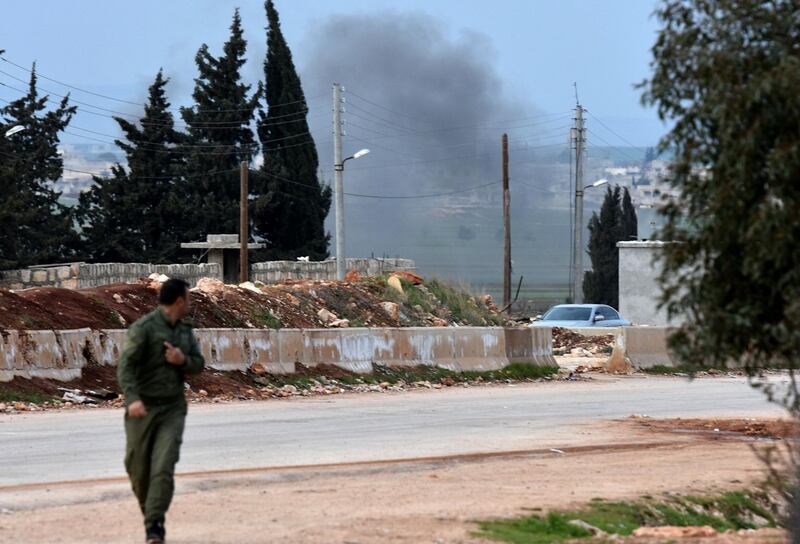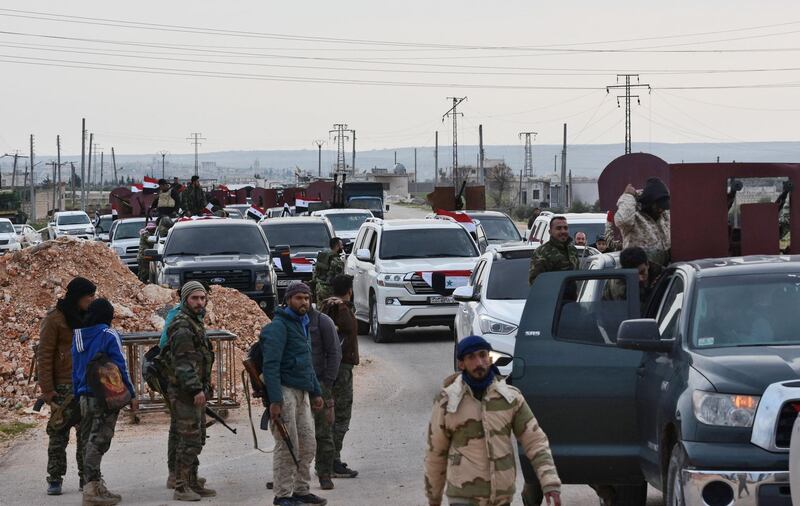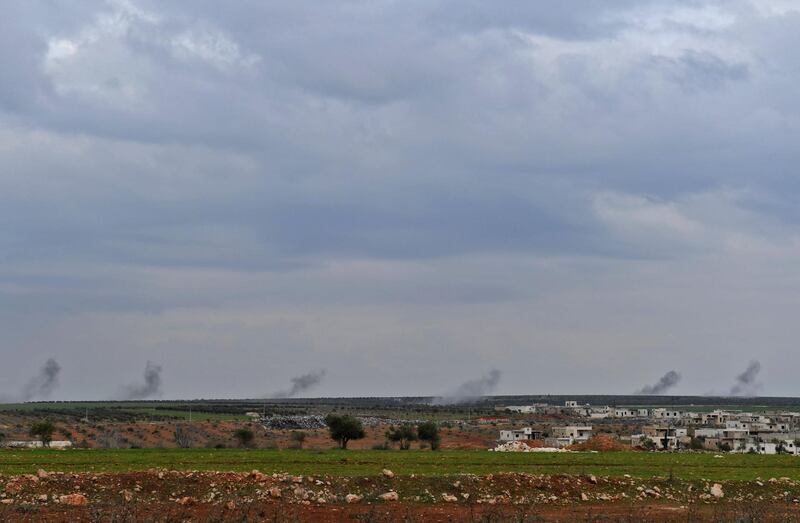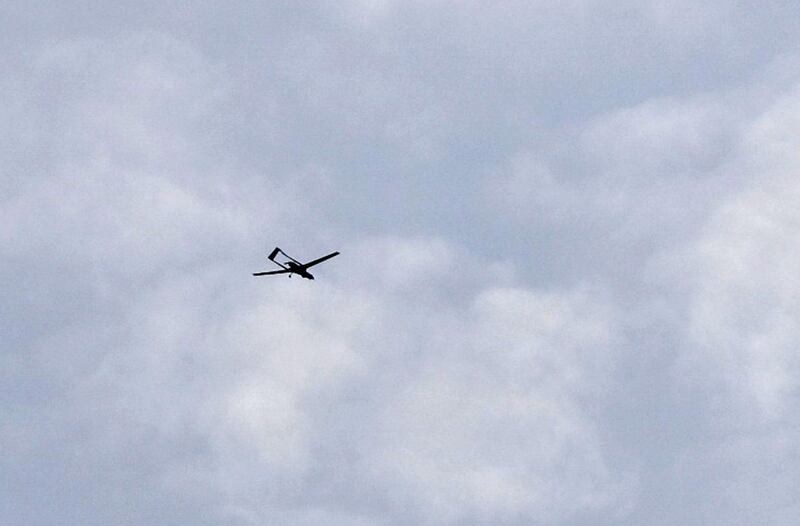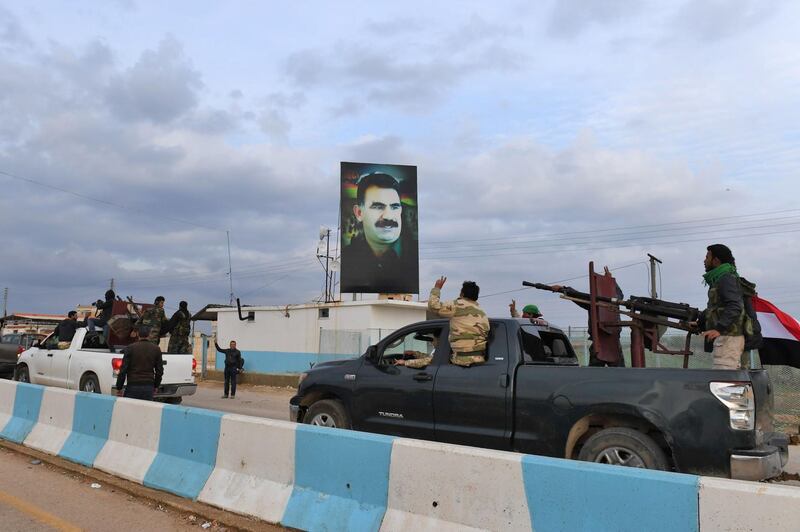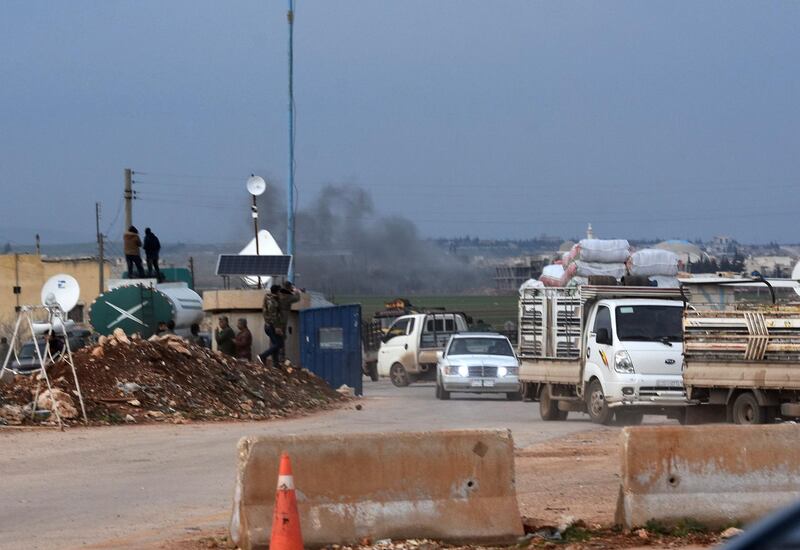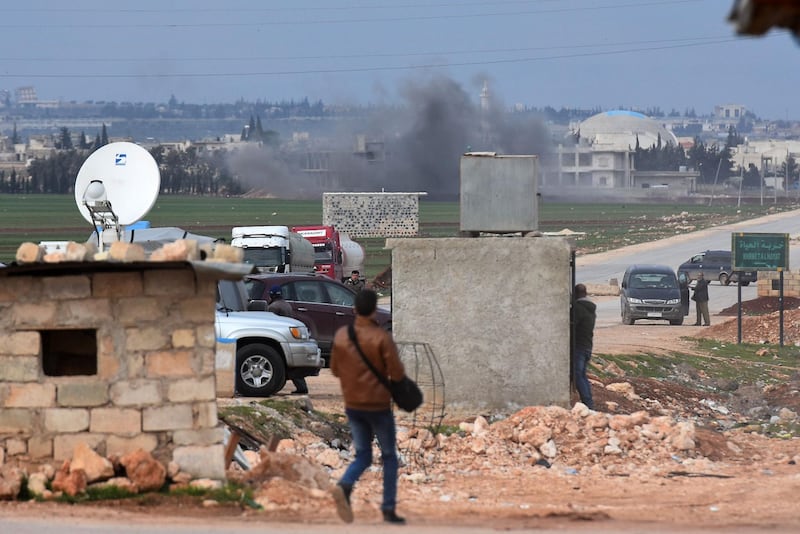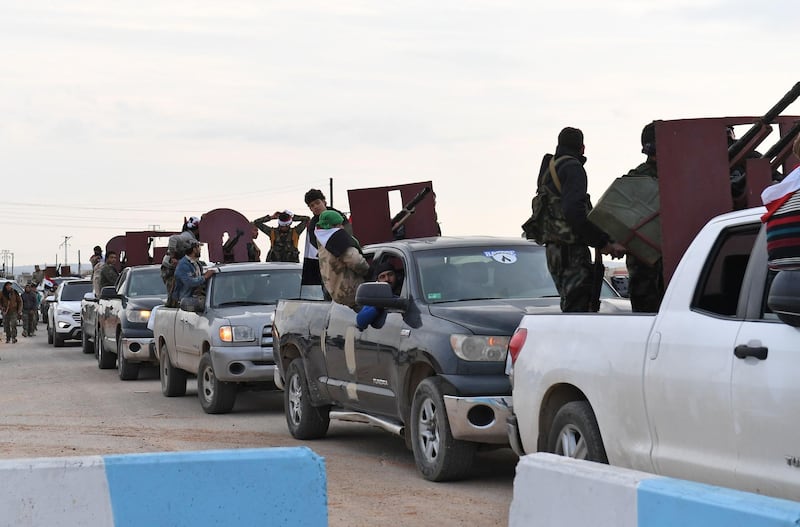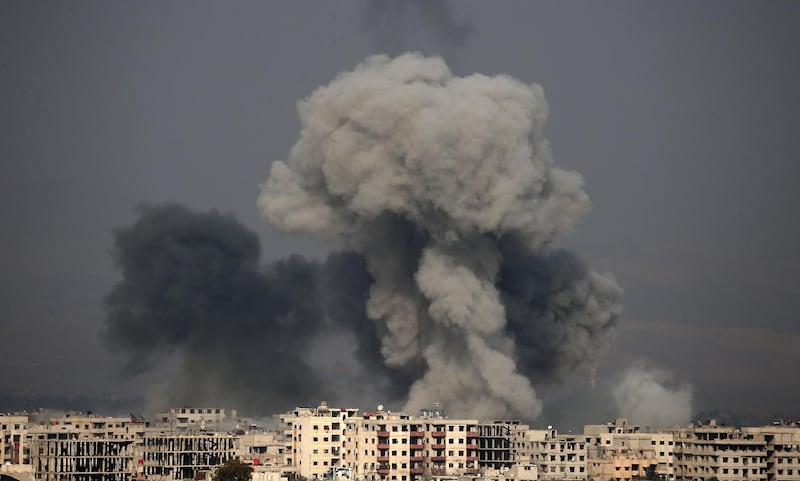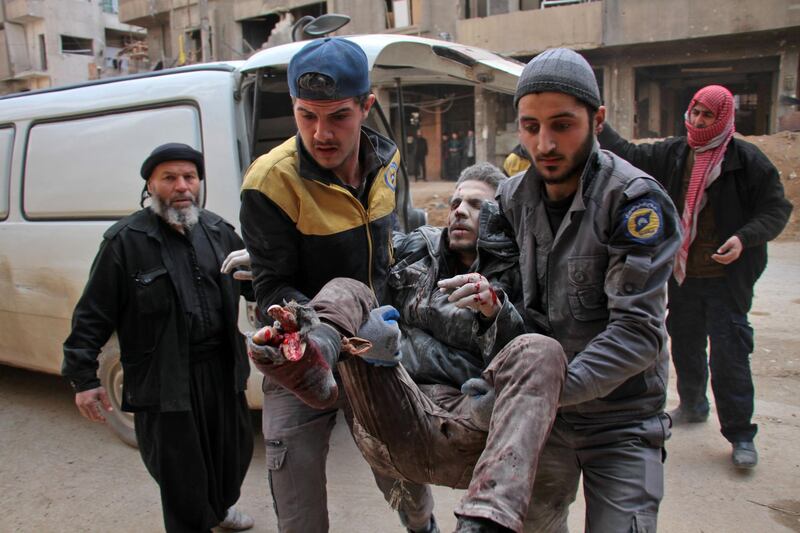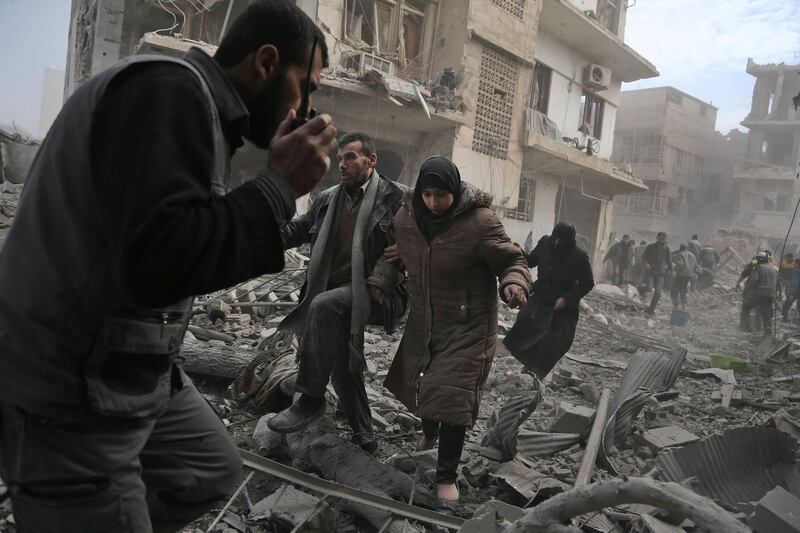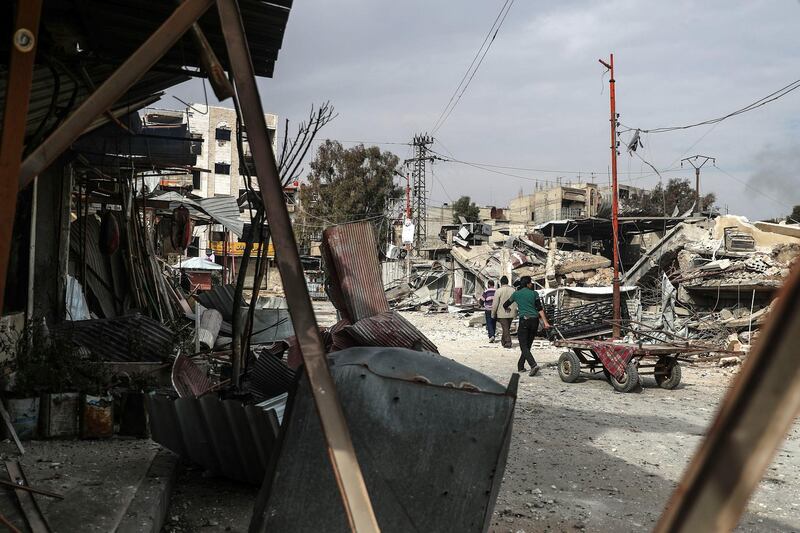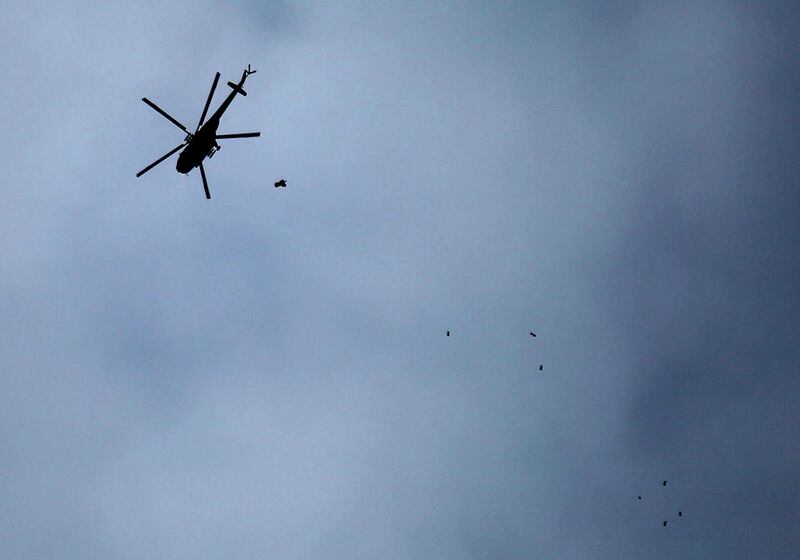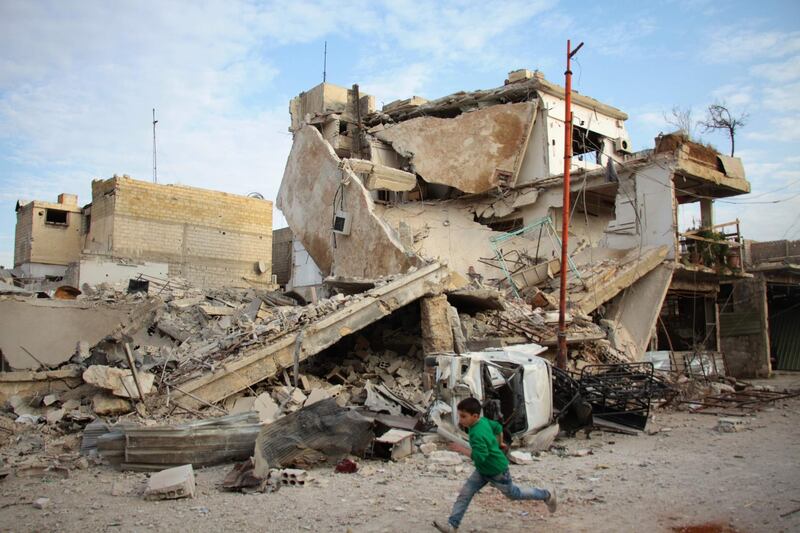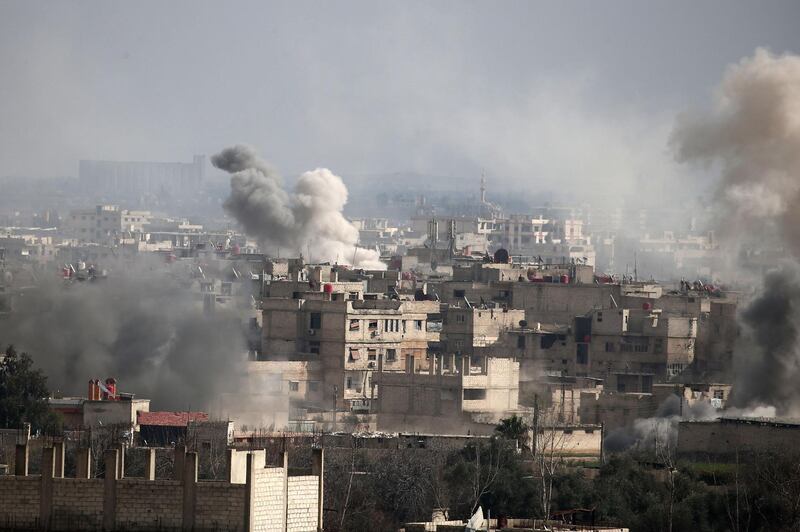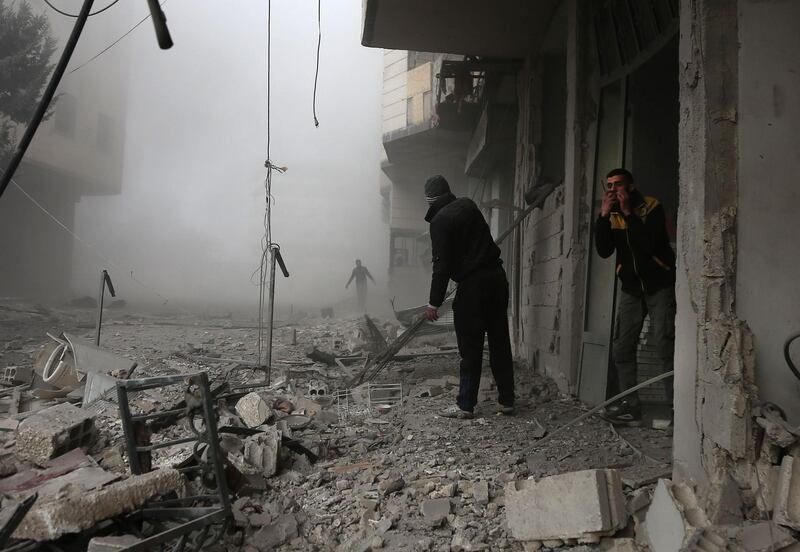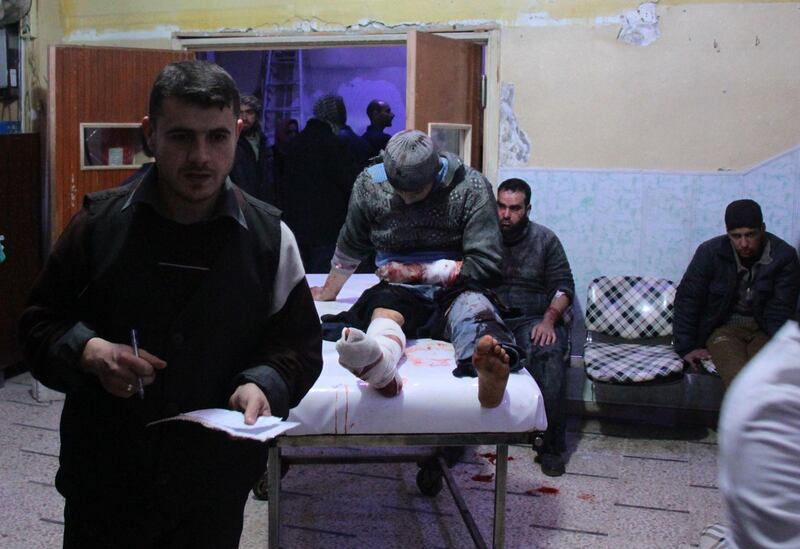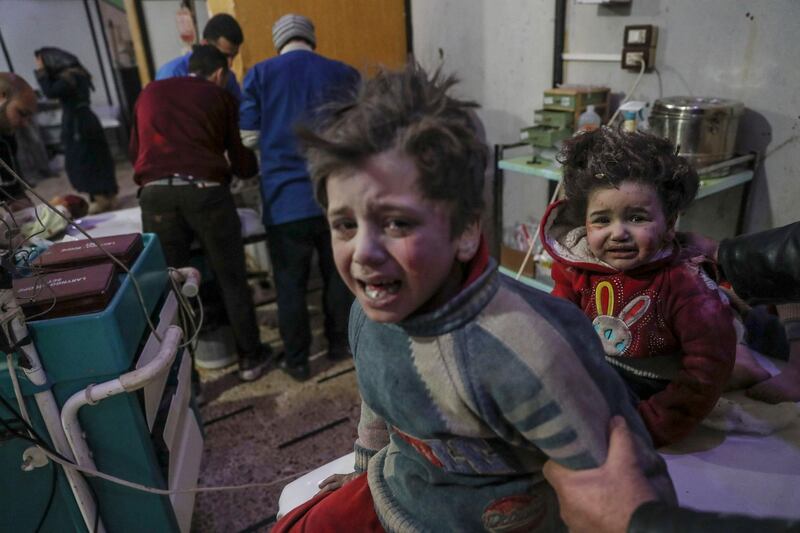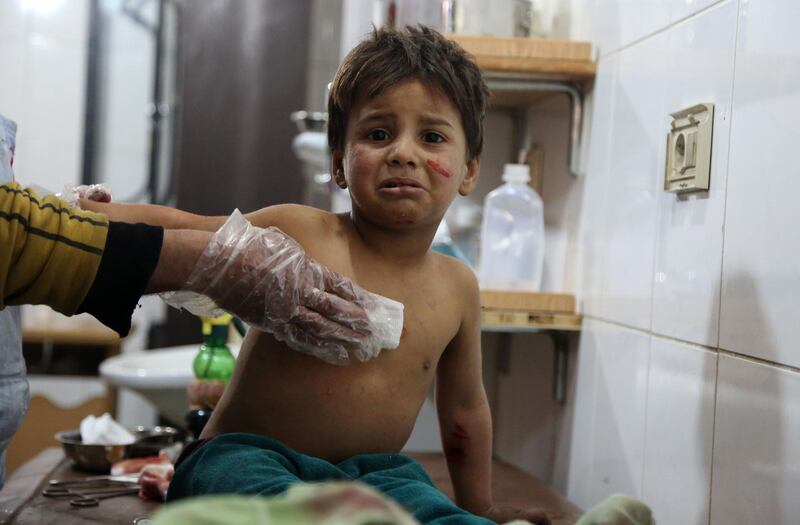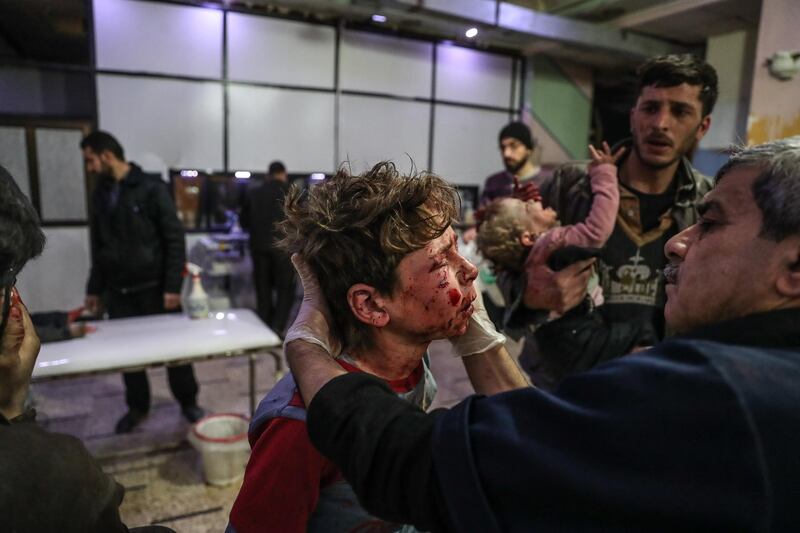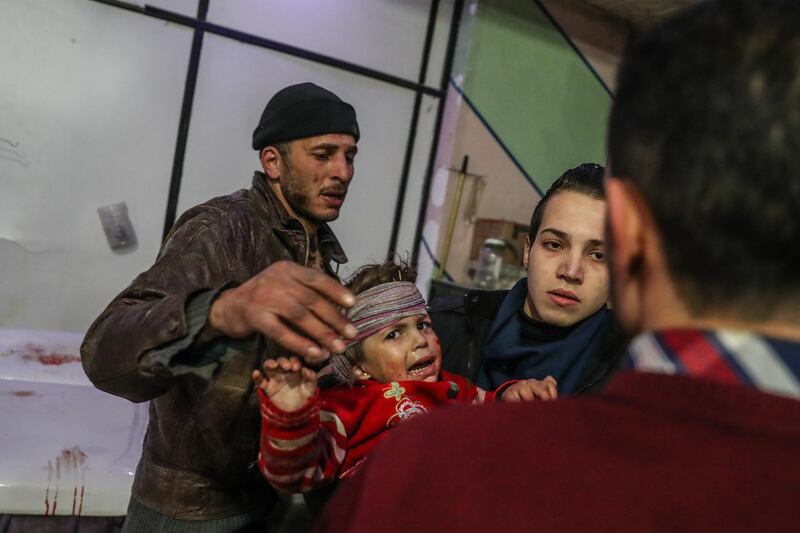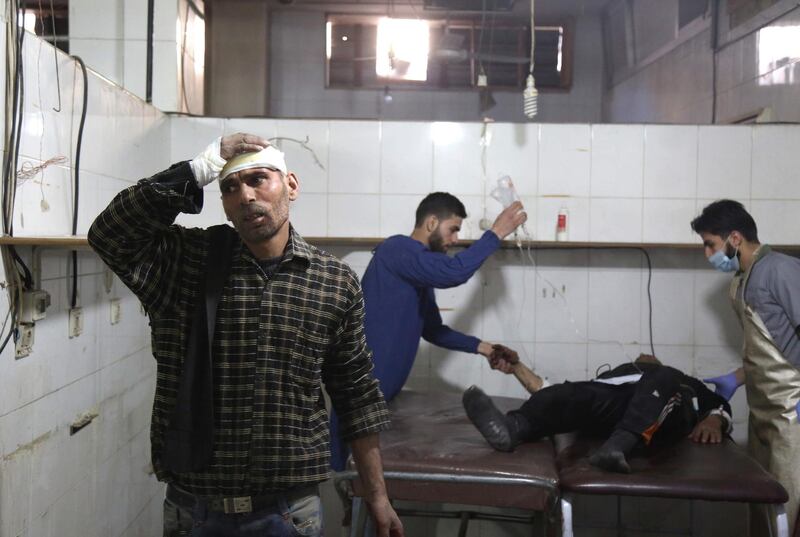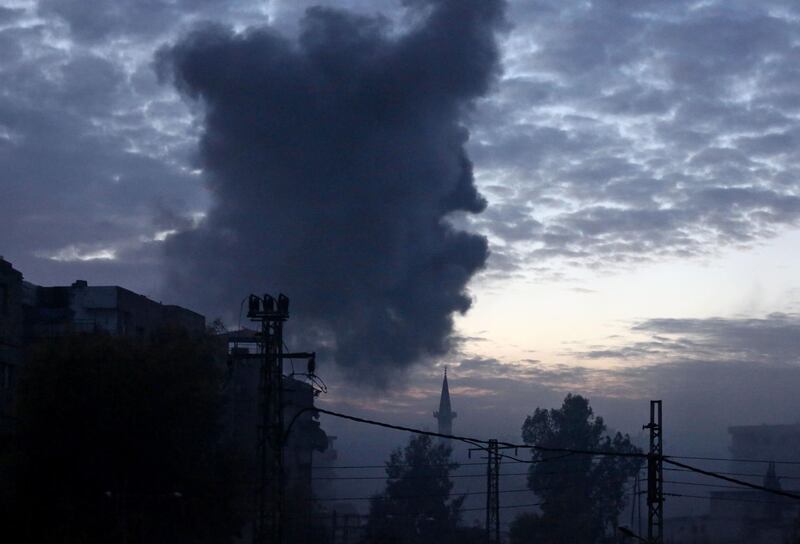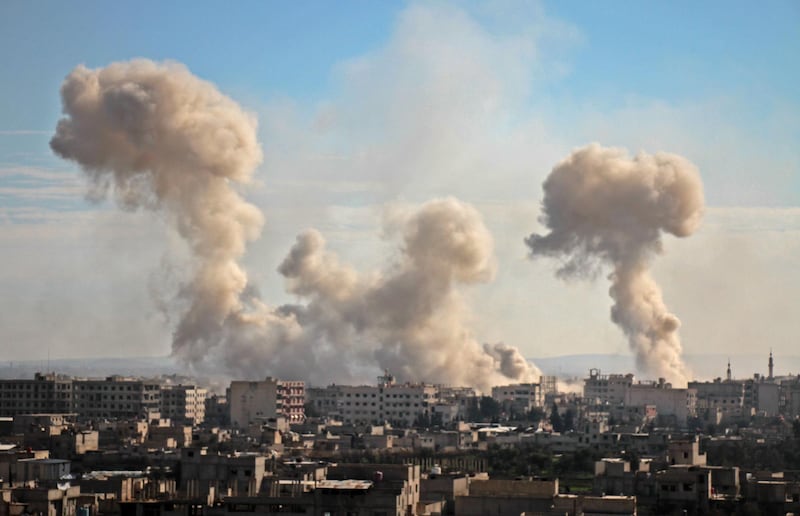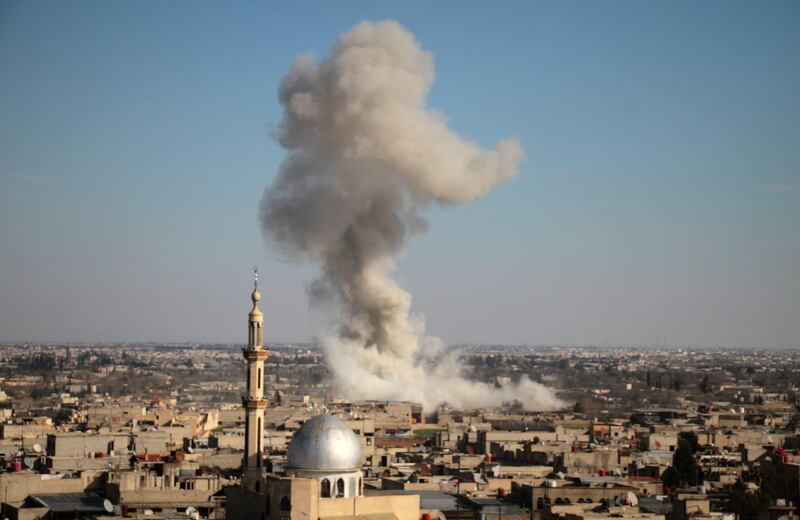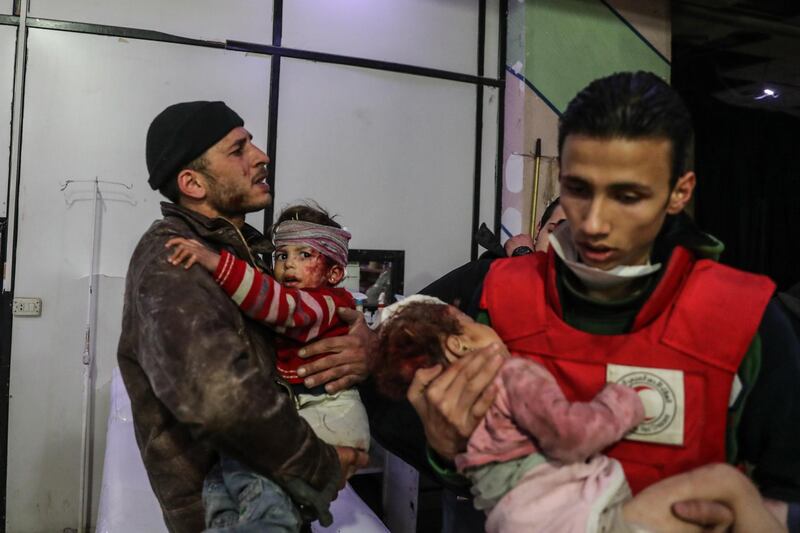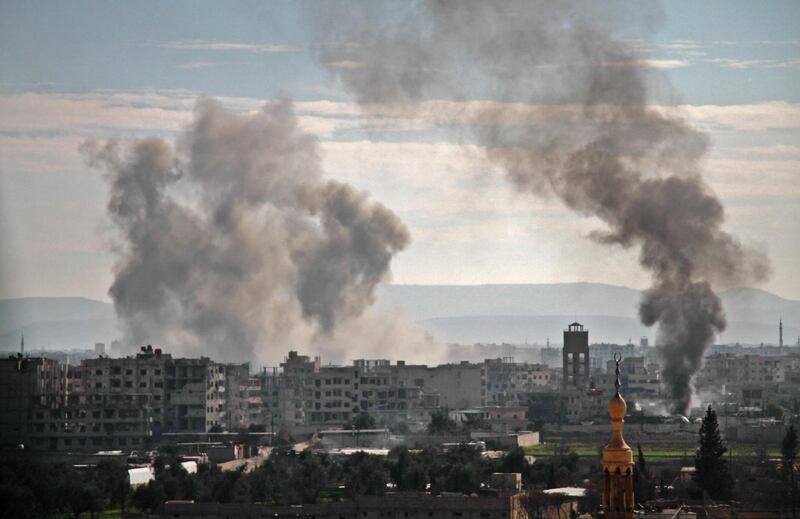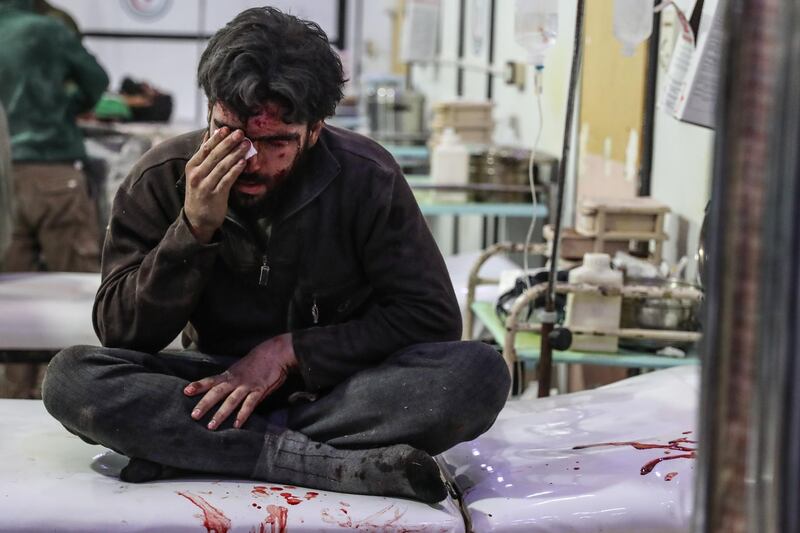Syria’s seven-year civil war entered into one of its most dangerous phases yet on Tuesday as air strikes by forces loyal to the regime and its Russian allies pounded the rebel-held eastern Ghouta, leaving more than 100 civilians dead for the second straight day as they hit a hospital, putting it out of service.
Damascus also sent pro-regime fighters to the northern Afrin region, where they came under fire from Turkish forces attacking the Kurdish-controlled enclave. Air attacks, rockets and artillery fire have battered the enclave in apparent preparation for a government ground assault.
At least 250 civilians have been killed in Ghouta since the escalation began on Sunday, among them dozens of children, the Britain-based war monitor, the Syrian Observatory for Human Rights, said. One hundred and six civilians, including 19 children, have been killed on Tuesday, according to the Observatory.
Hundreds of pro-Damascus fighters entered north-west Syria's Afrin region on Tuesday to help fend off a Turkish offensive against Kurdish-led forces. Ankara responded by targeting the government-allied militias with air strikes and artillery fire, Syrian state media reported.
It came after Syrian state media announced on Monday that pro-government forces would enter Afrin within hours. The militias entered the Kurdish enclave through Al Ziyara crossing point, north of Nubul, said Damascus ally Hezbollah.
It was also reported on Tuesday night that a member of the Union of Medical Care and Relief Organisations (UOSSM) was killed on Tuesday.
In a poignant final voice message, Abdul Rahman Ismail said “I am right in an area with a safe shelter and there is a hospital, but truthfully speaking it is absolutely terrible. Air strikes and barrels dropping like crazy. We don’t even have time to count them, or whether we should count them or to just run away.”
__________
Hassan Hassan:
Why Damascus and Kurdish militias have made a pact allowing regime-aligned forces to enter Afrin
__________
Dr Tayara of the UOSSM said: “The streets of Ghouta are apocalyptic. It takes great cowardice to attack schools, hospitals and civilians. To intentionally and systematically gas, burn, bomb and starve your own citizens with foreign assistance. To see children crushed by rubble and burnt horrifically, yet, continue the attacks. It is all repugnant and should disgust citizens of every country. The past two days have been the worst yet but this has been happening for five years. The UN is failing its mandate to uphold global peace and security. Years of inaction have left these institutions impotent with no moral foundation to stand on. They betray the very trust they were given to serve.”
Syrian Kurdish forces, meanwhile, said the government had sent military units to Afrin, which would “take up positions on the borders, and participate in defending the territorial unity of Syria and its borders”.
Nouri Mahmoud, spokesman for the Kurdish People's Protection Units (YPG) militia, said the YPG had invited the Syrian government to enter Afrin to help its fighters defend the region against Turkey’s “unjust invasion”.
__________
Read more:
Syria bombardment kills 100 in rebel enclave as ground assault looms
Russia's use of mercenaries in Syria is causing trouble back home
Syrian civilian deaths: 'As awful now as it's ever been'
__________
Ankara last month launched a cross-border offensive in Afrin against the YPG, which it accuses of having links the outlawed Kurdistan Workers' Party (PKK), which has been waging an insurgency inside Turkey since 1984. The PKK is also blacklisted as a terror group by the US and EU.
Earlier on Tuesday, Turkish president Recep Tayyip Erdogan said his forces would besiege the town of Afrin "in the coming days".
Pro-Damascus forces and Kurdish fighters have fought each other elsewhere in Syria, and the Syrian government opposes the Kurds’ demands for autonomy. But in Afrin they have a common enemy and a mutual interest in putting a stop to Ankara's offensive.
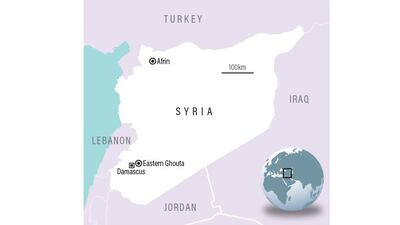
Responding to some analysts who say Turkey and allied Syrian Arab opposition fighters have made slow progress in Afrin, Mr Erdogan said on Tuesday that this was to avoid putting the lives of both its troops and civilians at unnecessary risk.
“We did not go there to burn it down,” he said, insisting the operation’s aim was to “create a safe and liveable area” for Syrian refugees inside Turkey, who fled across the border after the conflict began in 2011 and who now number more than three million.
Held by rebels since 2012, eastern Ghouta is the last opposition pocket around Damascus, and Syrian president Bashar Al Assad has dispatched reinforcements there in an apparent bid to retake it.
The United Nations decried the “senseless human suffering” as the onslaught ensued.
The main opposition National Coalition, which is based in Turkey, denounced the “war of extermination” in eastern Ghouta as well as the “international silence”.
In a statement, it also accused regime ally Russia of seeking to “bury the political process” for a solution to the conflict.
Residents of Hammuriyeh could be seen rushing indoors in panic as soon as they heard the sound of jets.
Alaa Al Din, a 23-year-old Syrian in Hammuriyeh, said civilians were afraid of a potential government offensive.
“Ghouta’s fate is unknown. We’ve got nothing but God’s mercy and hiding out in our basements,” he said. “There’s no alternative.”
Shelling also hit the town of Douma, where five toddlers were brought to a hospital, covered in dust and crying.
The hospital was full of distraught civilians: one father slapped his forehead after finding his two dead children, another erupted into tears as he discovered the body of his newborn on a purple sheet next to a pool of blood.
Eastern Ghouta is held by two main Islamist factions, while jihadists control small pockets including one directly adjacent to the capital.
The Observatory and Syrian daily newspaper Al Watan had said negotiations were under way for the evacuation of militants from Eastern Ghouta.
Government troops carried out a relentless five-day bombing campaign this month that killed about 250 civilians in the enclave and wounded hundreds.
About the same time, the monitor said, the regime began dispatching military reinforcements to eastern Ghouta.
After days of relative calm, the government sent more than 260 rockets crashing into Eastern Ghouta on Sunday.
The regime is keen to regain control of Eastern Ghouta to halt the deadly salvo of rockets and mortars that rebels fire on Damascus.
